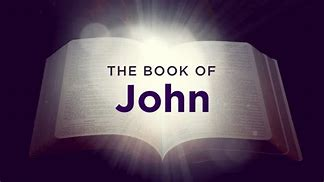Officers Sent to Arrest Jesus - {Interlinear <Greek>}
7:32 - The {οἱ<ho>} Pharisees {Φαρισαῖοι<Pharisaios>} heard {ἤκουσαν<akouō>} the {τοῦ<ho>} crowd {ὄχλου<ochlos>} muttering {γογγύζοντος<gongyzō>} these {ταῦτα,<houtos>} things ← about {περὶ<peri>} him, {αὐτοῦ<autos>} and {καὶ<kai>} the {οἱ<ho>} chief priests {ἀρχιερεῖς<archiereus>} and {καὶ<kai>} Pharisees {οἱ Φαρισαῖοι<ho Pharisaios>} sent {ἀπέστειλαν<apostellō>} officers {ὑπηρέτας<hypēretēs>} to {ἵνα<hina>} arrest {πιάσωσιν <piazō>} him. {αὐτόν.<autos>}
7:33 - Jesus {ὁ Ἰησοῦς·<ho Iēsous>} then {οὖν<oun>} said, {Εἶπεν<legō>} “I → will → be {εἰμι<eimi>} with {μεθ᾽<meta>} you {ὑμῶν<sy>} a little longer, {ἔτι χρόνον μικρὸν<etichronosmikros.} and then [καὶ<kai>} I → am → going {ὑπάγω<hypagō>} to {πρὸς <pros>} him who {τὸν<ho>} sent {πέμψαντά<pempō>} me. {με.<egō>}
7:34 - You → will → seek {ζητήσετέ<zēteōmeμε<egō>} and {καὶ<kai>} you → will → not {οὐχ<ou>} find {εὑρήσετε,<heuriskō>} me. • • {καὶ<kai>} Where {ὅπου<hopou>} I {ἐγὼ<egō>} am {εἰμὶ<eimi>} you {ὑμεῖς<sy>} cannot {οὐ<δύνασθε<oudynamai>} come.” {ἐλθεῖν. <erchomai>}
7:35 - • {οὖν<oun>} The {οἱ<ho>} Jews {Ἰουδαῖοι<Ioudaios>} said {Εἶπον<legō>} to {πρὸς<prosone>} another, {ἑαυτούς·<heautou>} “Where {ποῦ<pou>} does → this {οὗτος<houtos>} man ← intend {μέλλει<mellō>} to → go {πορεύεσθαι<poreuomai>} that {ὅτι<hoti>} we {ἡμεῖς<egō>} will → not {οὐχ<ou>} find {εὑρήσομεν<heuriskō>} him? {αὐτόν;<autos>} Does → he → intend {μέλλει<mellō>} to → go {πορεύεσθαι <poreuomai>} to {εἰς<eis>} the {τὴν<ho>} Dispersion {διασπορὰν<diaspora>} among → the {τῶν<ho>} Greeks {Ἑλλήνων<Hellēn>} and {καὶ<kai>} teach {διδάσκειν<didaskō>} the {τοὺς <ho>} Greeks Ἕλληνας;<Hellēn>} ? {μὴ<mē>}
7:36 - What {τίς<tis>} does he mean {ἐστιν ὁ λόγος οὗτος<eimi ho logos houtos>} • {ὃν<hos> by → saying, {εἶπεν·<legō>} ‘You → will → seek {ζητήσετέ<zēteō>} me {με<egō>} and {καὶ<kai>} you → will → not {οὐχ<ou>} find {εὑρήσετε,<heuriskō>} me,’ • and, {καὶ <kai>} ‘Where {ὅπου<hopou>} I {ἐγὼ<egō>} am {εἰμὶ<eimi>} you {ὑμεῖς<sy>} cannot {οὐ<δύνασθε<oudynamai>} come’?” {ἐλθεῖν;<erchomai>}

The Feast of Booths was a joyful celebration in Jerusalem. It commemorated the ingathering of the fall crops and the years the Israelites spent living in tents as they journeyed through the wilderness (Lev. 23:33–43; Num. 29:2–38). Two symbols—water and light—played a significant role in this high feast. During the course of the week, water was drawn from Siloam and poured upon the altar, in commemoration of the refreshing stream that had come forth miraculously out of the rock at Meribah (Ex. 17:1–7).
Jesus’ loud invitation to the thirsty was a startling, even scandalous declaration. He was claiming to be the rock that Moses struck in the wilderness—the rock from which life-sustaining water flowed (see also 1 Cor. 10:1–4). But Jesus was also looking ahead to the day of Pentecost, when “in the last days” he would pour out his Spirit (Joel 2:28–29; Acts 2). After his ascension, the Father gave the Spirit to Jesus without limit (John 3:34), and Jesus gives us the Spirit without reservation (John 1:33)—both enabling us to believe and confirming that we do believe (Eph. 1:13–14).
References:
All contents are reposted from ESV.org.
“Scripture quotations are from The ESV® Bible (The Holy Bible, English Standard Version®), copyright © 2001 by Crossway, a publishing ministry of Good News Publishers. Used by permission.
All rights reserved.”
Comments